The key to Middle East peace is accepting the past
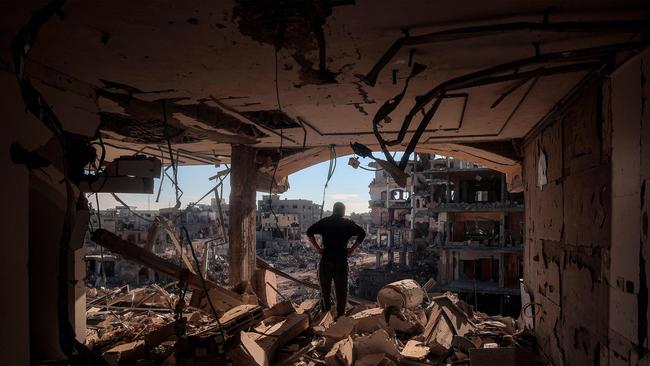
And I am content with that. I’m not saying I am entirely happy, since there is a lot of history for me wrapped up with that house. But I don’t expect the home back. And the bagels were a nice touch.
My family’s home stands at the top of a hill in the Ukrainian city of Lviv, although when my grandfather built it in 1938 the city was called Lwow and was in Poland. Only a couple of decades earlier it had been a place called Lemberg, part of the Austro-Hungarian empire. On maps, and according to a plaque outside the building, the dwelling is called Villa Finkelstein. Although this month it is 85 years since any Finkelsteins have lived there.
In 1940, following an earlier Russian invasion, the house and my grandfather’s other property was confiscated by the state.
Eventually Villa Finkelstein and the other houses in the road became homes for Soviet officials. Leonid Brezhnev stayed there, among others. Nikita Khrushchev was a neighbour. And then it passed to the Ukrainian president, before he was deposed and the house was sold to its current owner.
The legality of all this was pretty dubious even at the time, even under Soviet law. I am entitled to think of it, as I do, as theft. I would be deeply resentful, if being deeply resentful were part of my make-up. And I might reasonably expect others to share my resentment and to purchase my elegiac book on the subject (available from all good bookshops).
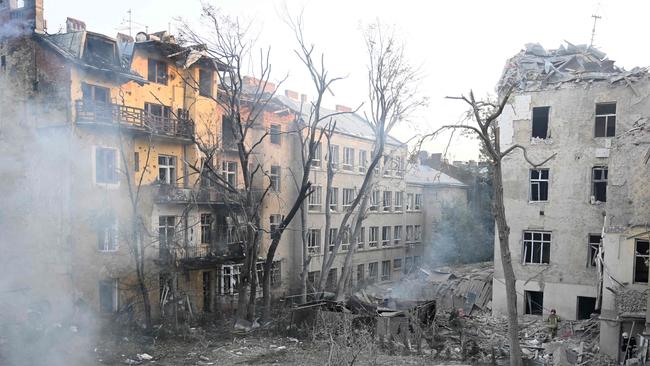
What I don’t think I could reasonably expect is that if I embarked on a march through central London demanding my home back I would turn round and find many people following me. Even (or perhaps especially) Jeremy Corbyn. And you can’t organise a march through central London without him.
It is not only the home that has gone. When Lviv was Lwow it was a multi-ethnic city, shared by Jews, ethnic Poles and Ukrainians. After the war ended, part of Germany became Poland and part of Poland (the part with Lviv in it) became Ukraine. The remaining Poles moved out and there were hardly any Jews any more.
For me to insist that the boundaries of Germany be redrawn to match those of 1939, followed by the boundaries of Poland and Ukraine, would clearly be absurd. As it would be for me to ask that all the property rules for 85 years in Lviv be overturned, allowing people to move back into property once owned by their grandparents. Not that I wish to. My grandfather died penniless in exile but we live here now.
I’m relating this story because of its obvious relevance to the Middle East. For almost a century there has been an argument about the creation of the state of Israel and doubtless this argument has at least a century to go. There will be those who characterise its creation as mere invasion and pure theft, and those (I include myself) who sympathise with the return of oppressed Jewish refugees to their ancient homeland and believe it could have been done without violence or appropriation if it had been accepted from the start.
I am not saying that this dispute is irrelevant intellectually or emotionally. I am not claiming a monopoly of wisdom for my own position or anyone else. I am not saying that people should stop talking about their grievances or seeking economic redress or writing elegiac books. But I am saying that this is history, however powerful, and we cannot go back.
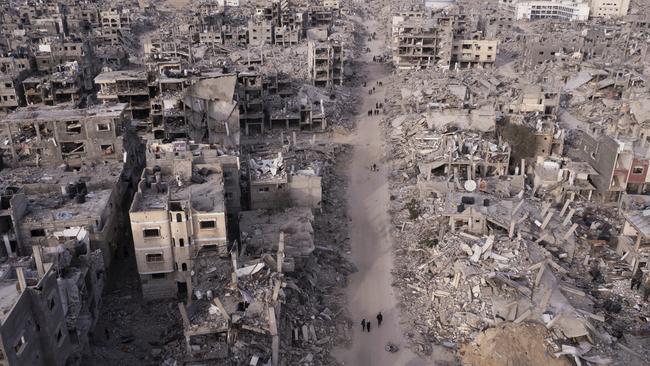
However they got there, and whatever the feelings there may be about it, nearly half the Jews in the world live in Israel. They have created a state there, one that was offered to them by the United Nations and recognised by major powers, and that state isn’t going anywhere. There will be constant war until this simple fact is accepted.
I believe strongly in a Palestinian state. Israel should not occupy the West Bank or Gaza. I think the way that important factions in Israeli politics, including the prime minister, have turned against this is a moral and strategic error of great depth. But I understand why their position has become mainstream. It is because the people of Israel will not contemplate a state next door that threatens them with violence and promises eradication. What electorate would ever vote for that?
For decades, the Palestinians and their allies have launched wars they then lose and complain to everyone about losing. It never seems to strike them that a better idea might be not to launch these wars.
In the West, the various campaigns that express solidarity to Palestinians are not, in fact, showing them any solidarity at all. They have their own agenda about their own power and status and which uses Palestinians as a rhetorical prop. And they are misleading the people they pretend to support. They are like a friend who would advise me to throw up my life, pick up a gun and go and invade Lviv by myself in the name of Marshal Pilsudski and his brigades of Polish legionnaires.
These western-based supporters provide solidarity only for the most violent rejectionists and leave bereft those people in Palestine itself who might be willing to come to terms with both reality and Israel.
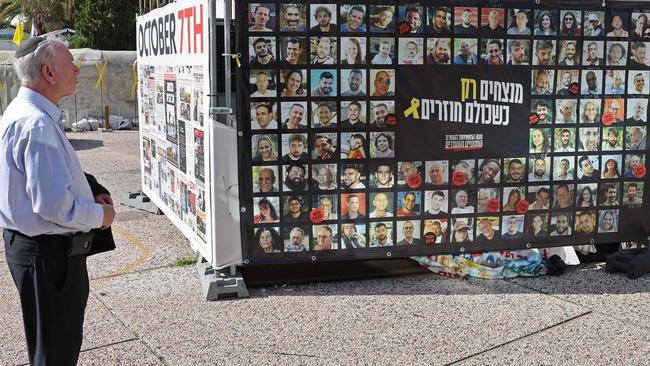
For as long as Palestinians hold out hope that there will be a Palestine “from the river to the sea” there will be war and death, however hard we all work to prevent such calamities, such horror.
Any protester chanting this slogan is encouraging others to go to their death, and to go and kill innocent people, while themselves promising only to write a cross message on a piece of cardboard and wave it outside the Garfunkel’s restaurant near Trafalgar Square.
This is all worth saying because what we have now is a ceasefire and not a peace. It is the duty of Israel’s supporters – people like me – to insist that Palestinians must be allowed the dignity of their own state. And we will. But our insistence will come to naught if Palestinians are not urged equally firmly to accept that they must live in peace with their Jewish neighbours. This means financial compensation and not a right of return, which is a practical impossibility.
This war is so unnecessary and so tragic. And this ceasefire is so fragile. There will not be peace until everyone makes their peace with history and reality.

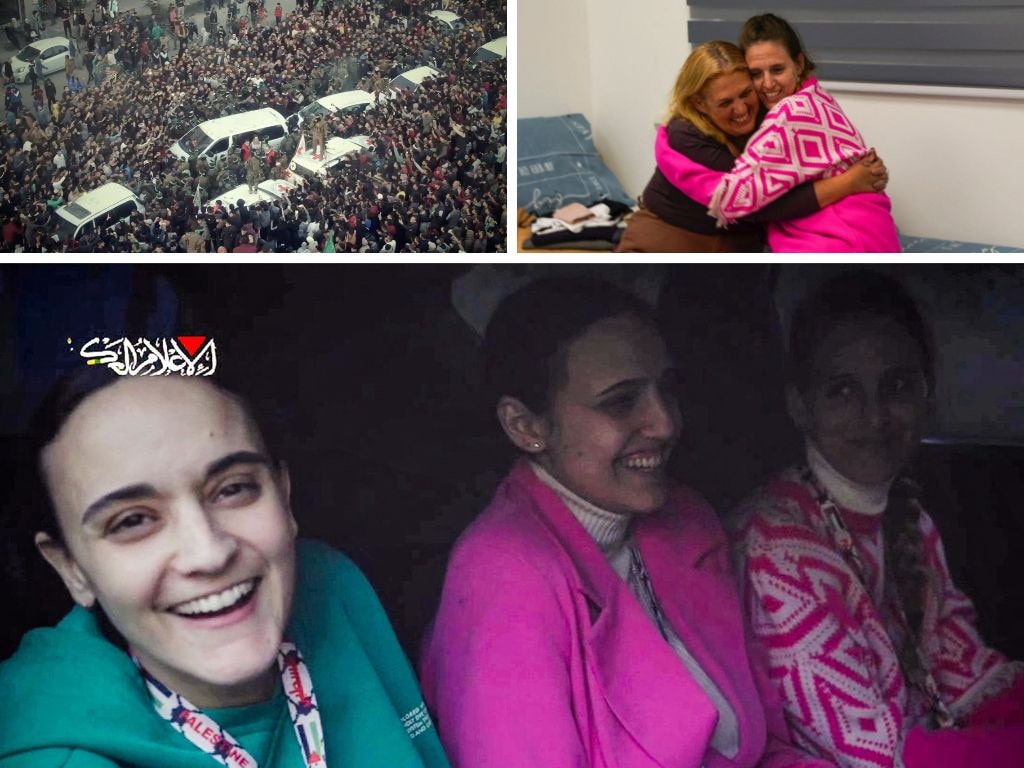




A restaurateur has moved into my house. He has brought his family, installed a large-screen television, parked his Porsche and his Tesla in my drive and has no intention of moving out. If I come round he will politely entertain me to afternoon tea, on the unspoken understanding that when we have finished the mini bagels, I will leave and he can carry on with his life.